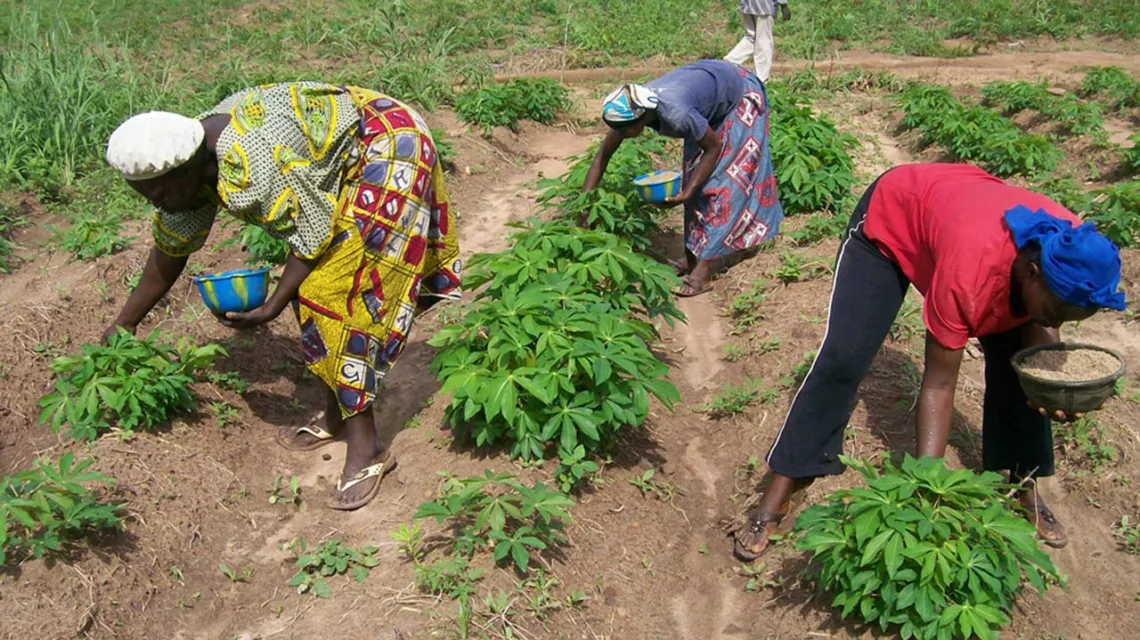The drive to ensure food security in Nigeria is an effort that requires full participation of everyone without gender disparities.
It is found that the role of women in achieving food security is yet to be fully recognised in Nigeria despite their 60-80 percent involvement in agricultural labour and food production.
Apart from this greater percentage, women also account for the process and preparation of the majority of available foods. These roles remain a pointer they are more involved than men in the production of food from farm to table.
The federal government years back identified that huge gaps exist in the agricultural sector with women and people with special needs contributing a lot to food security, but with small access to available agricultural asset and face challenges such as limited access to input, fertiliser, seed, fund, market, land, information, capacity building among others.
Experts also noted that the major constraint to the effective recognition of women’s actual roles and responsibilities in agriculture is the scarcity of gender desegregated data available to technicians, planners, and policy-makers.
Since most of the woman in agriculture are rural based, experts believe that the first step towards women’s empowerment and full participation in rural development and food security strategies is the collection and analysis of gender desegregated data to understand role differences in food and cash crop production as well as men’s and women’s differential managerial and financial control over production, storage and marketing of agricultural products.
In line with goal 2 of the Sustainable Development Goals(SDGs) on ending hunger by 2030, the recognition of women role in agriculture, gender equality drives and empowerment becomes even more imperative to achieving food security, considering their vital roles in this direction.
The director of Centre for Gender Studies, Kaduna State University and chief executive officer, EDEADEX Organic Farm, Prof Hauwau Evelyn Yusuf said federal government must make concerted efforts to train and empower more women in agriculture to drive the food security agenda and sustainable agriculture.
Prof Hauwau maintained that since majority of the women in agriculture are rural based, such training should done consistently in the rural area especially in new technologies, methodologies and mechanisms of farming.
She added that as food security remain sacrosanct, Nigeria must found a way to bridge women knowledge gaps in agriculture and champion how and when to produce food for the nation.
She said, “Women form the larger part of people who are into agricultural produce so when you talk about food security, the role of women cannot be overemphasised, for example women are the majority of people tilling the soil and planting and when it come to the time of harvest it is also women that are involved in harvest and the role of women does not stop at the point of tilling and harvesting, the role of women is more in food processing and as such the cycle from seed in the farm to the table at home cannot be done without the involvement of women.”
To that extent, women should be encouraged to be engaged in the production of food and at the same time, they have to be empowered to be able to do what they are doing, so it is very important to have women to be able to produce food on time and in large quantity.”
“The knowledge of how to produce the food and when to produce the food is something that is sacrosanct to the food security, it is very important for the nation to try and bridge the gap that exists in the knowledge world especially with new technologies, methodologies and mechanism, there is also a need for consistent training and enlightenment for the women in agriculture and that should not be done in the urban area, It should be taken to the rural area where the majority of women farmers are located,” she added.
The inclusiveness of women in agricultural in line with goal 5 of SDGs will not only ensure gender equality but will also boost economic growth and reduce poverty.





